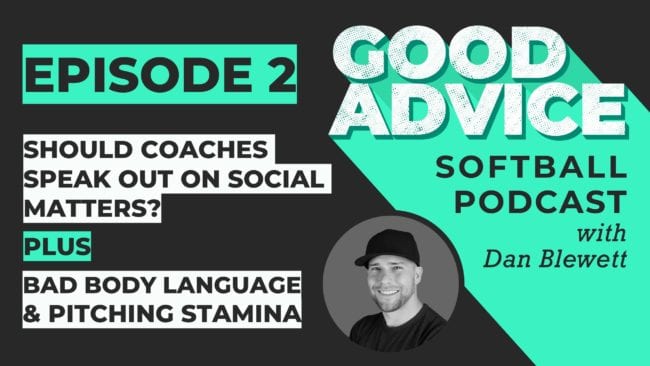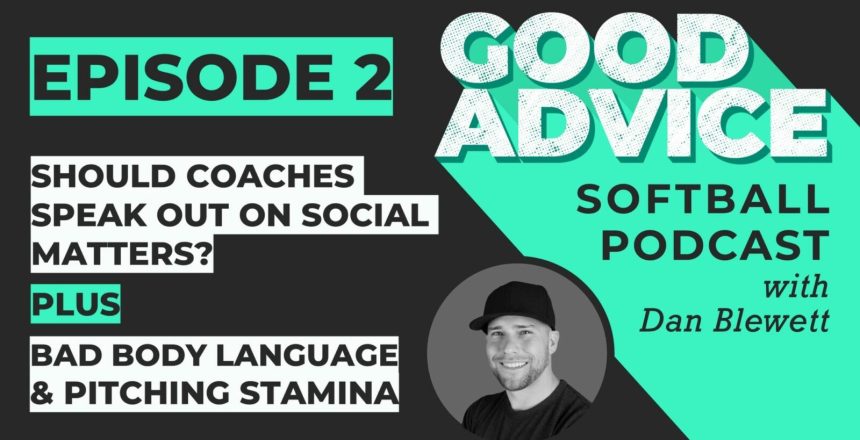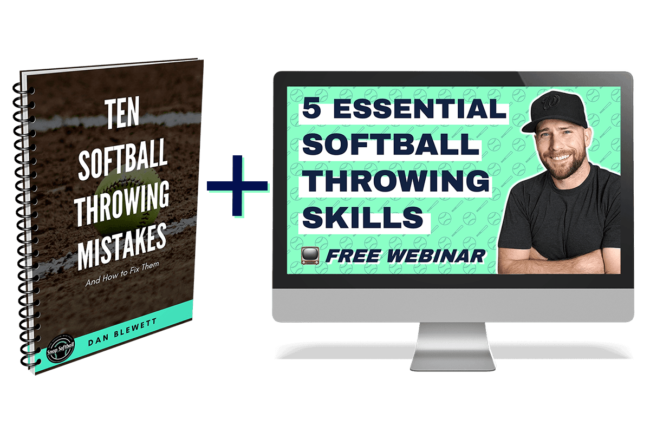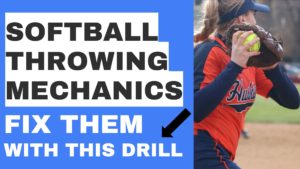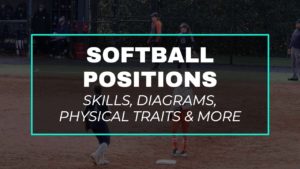*This article may contain product links which pay me a small commission if you make a purchase. Learn more.
Why is strength training so crucial for young girls? How can a player combat bad body language? How does a pitcher develop more late-inning stamina? These questions and more are addressed in Good Advice Podcast episode 2.
Also: Dan’s recent open letter to young white athletes, explaining the racial protests. Many kids don’t know what to think and perhaps lack the life experiences to really have proper perspective. Yet, Dan received blowback on this article and addresses the idea of “stick to coaching” and why this is poor thinking. Coaches are huge influences on the lives of young people everywhere.
To submit a question for the Good Questions Q&A segment, make a voice recording and email it to Dan at hello@danblewett.com.
Want to support the show? Enroll in one of Coach Dan’s online throwing courses or his mental skills course. Use code GOODADVICE to save 20% on any course, just for being a listener.
Sign up for Dan’s Email list and get his free throwing eBook, and follow up with him on the interwebs: YouTube Channel | Twitter | Snapsoftball.com
Podcast: Play in new window | Download
Subscribe: Apple Podcasts | Spotify
EP2 – Full Transcript from the Good Advice Softball Podcast
So in today’s main topic, I’m going to talk about two things. Number one. The idea of sticking to sports. So this is something that I’ve had to kind of deal with this past week. If you are on my email list, then you got my recent letter. It was an open letter to young white athletes.
And this was me sharing, not a political opinion, but my experience as a player, who’s seen racism in my clubhouses, uh, you know, slash locker room, whatever you want to call it. Um, and also as a coach, I have a pretty, pretty tuned in to what kids understand about it. So this was my advice as if I was sitting next to someone on the dugout bench, which I’ve had conversations like that with kids before helping them understand a lot of the tough stuff that kids go through.
And I think as coaches, uh, that’s part of the role that we play. So I’m going to, I’m going to discuss that, but in part two of this, a main topic, I also. Want to talk about, uh, strength training and the role it has in a young girl’s life. Cause that sort of goes hand in hand with this whole thing. So. I got a bunch of, I know I sent this letter out the other day to my email list, which is close to 4,000 people.
And I got a handful of emails back that did not agree with me sending it out or didn’t agree with the message in general, a message that a was completely nonpolitical. It was honestly, I don’t have political leanings. I’m not a Democrat. I’m not a Republican. I think both sides are to just have equal mounts of deferring corruption.
And I just am not super interested in politics. I have other things to work on and worry about, and it’s not really my chosen thing to talk about at the water cooler. That being said, um, you know, people, I think mistake political opinions for opinions, you know, like I use this analogy on my other podcast.
If, if I say that, Hey, I love pizza. And someone says, Oh, well, Republicans love Peters. You must be Republican. It’s like, no, I just, that’s just my opinion. It’s not in a political pain just because other people may feel that it’s political. So with this issue of race, um, and some of the systemic racism in America, which for sure, objectively exists, I’ve seen it.
We’ve all seen it. I have a number of black friends, many of whom I admire. And I’ve talked to them about this. Like, this is a real thing. And that was part of what I want kids that look up to me to understand it’s not pointing a finger at them. It’s saying, look, this is something that all of us have to help clean up that if, uh, you know, one thing that I see every day as I leave my apartment and walk around Washington, D C where I live, I see homelessness, DC has a lot of homelessness and.
I read a book. I can’t remember what it’s called. And it was by the psychologist and she had a really profound statement and she said that she makes her kids, um, it doesn’t matter. It feels, you know, her son’s mess or her, her daughter’s mess like the toys in the living room. She said, Hey, clean that up.
And they’d say, why I didn’t, I didn’t make that mess. That was, you know, my sister, you know, Margaret, that was hers. She said, I don’t care, clean it up. And her kids felt like that was unfair until she explained like, look. Just because it wasn’t your mess today. It’ll be someone else’s mess tomorrow. And her analogy with all this was that we can’t ask drug addicts to clean up their own mess.
Like we see them on the side of the road and we say, Hey. Like that’s his problem. Like he chose to do drugs. He earns the consequences. If we ask drug addicts to clean up their lives, no one will, no one does it. It’s, it’s too hard for them to do that. They need help. If we ask homeless people to fix their own problem of homelessness, which is a vicious cycle, um, it doesn’t get fixed.
Other people need to help fix these problems. It’s, it’s all of our collective mess. So I’ve been internalizing that message and thinking about it as I walk out and I see homeless people every day. Every day. And when I lived in the town, I grew up in, which is a nice, safe little town and the town I lived in for the last 10 years in Illinois.
Um, you don’t see that you almost never see homeless people there, so you don’t have to think about it. It’s not part of your life. You don’t realize what a problem it is, other places. And so you think it’s always over there. It’s someone else’s problem. But in reality, if a lot of these people who deserve help, who need help.
It’s going to have to come from someone else. Someone else is going to have to help them and make it their mess that they’re homeless and make it their mess to help someone kick the drug habit. And I think we all deep down understand that to some degree, it’s just maybe not as present in their lives as, as it is for others.
So my overarching point here is that. I don’t really care about baseball. I don’t really care about softball. I don’t really care about teaching soft ball throwing. I don’t really care about that stuff. I do it because it’s my platform and it’s something I know. And I care about giving kids confidence and when they can throw the wall, cross the diamond, it gives them confidence.
Now they can play other positions and now they think, Oh man, maybe I have a chance. Maybe I can play. Maybe I could be. That varsity starter. Like I look up to these girls on the varsity team. Maybe I could be her, then maybe I could play in college. I’ve seen this firsthand girls like this coming to our Academy over the years and transform.
And that is really why I did all that. That’s why my business, part of it, all that, that’s what all of our coaches that we employ did all that. They didn’t do it because there’s some greater good and throwing a ball hard. Like, I honestly don’t care about pitching at all. Like I obviously care about it.
It’s one of my things, but not in the sense that it’s some greater thing. It’s a means to an end. Baseball was a means to an end for me, um, being here and helping to influence other people. It was something I enjoyed while I did it and I still miss it. And, uh, I have a lot of great memories, so it’s not solely a means to an end, but it is a means to an end and developing who I am today.
And who everyone else is because I met so many people who were influential to me along my journey. And so many coaches that didn’t just stick to stick to sports. They taught me life lessons and they showed me how to be. Um, the man that I, they thought I should be one day. And so, as I sent this letter out, I got some bad feedback I got, most of it was not, but some of it was, and people said, man, this is you.
Shouldn’t be doing this. You know, this is disappointing. And, you know, this is just Democrat BS, or you should just stick to sports, stick to coaching, and I’m not going to stick to coaching because this is coaching. You know, this is, this is why you send your kids to a program. And hopefully you vet the coaches and you have an idea of who their kids are gonna be learning from.
Because whether you like it or not, as parents, your kids are going to idolize their coaches who played, they’re going to idolize these athletes. They’re going to listen to people like LeBron James, when they speak their mind about, about a societal issues. They’re going to say they’re going to listen to them much more than.
Um, you know, some politician that they don’t have anything in common with. I mean, think about how, how important Jennie Finch would be talking about issues like this right now, or Natasha Watley or any of these big time softball players, you know, kids idolize them. They want to hear what they say. They they’re forming opinions.
Now that will be with them the rest of their lives. So it’s important that they hear. Voices for good when they’re available. And so that’s why I can’t just stick to coaching. So, you know, if you’re listening to this podcast, chances are you have some idea of my character, um, some idea of what I’m about and why I do what I do.
I don’t make much money from YouTube, but I’m. Passionate about giving back to the game and using my platform for good, because my ultimate thing is I want to be a speaker in front of a lots and lots of young people and parents because the message and the things that I learned in my career, which are in my book, which you have, if you haven’t read, I highly suggest you read now because I want your $7 in royalty money.
But because. There’s so much in there about how my life was shaped as an athlete, by all the people around me and how hard it was to get where I went and how much your kid’s going to go through and getting to that point. And that book, even though, and again, does help me pay my bills. That book is, is going to help a lot of kids and parents understand what they’re going to go through and get through it better and easier than I did.
And that’s really, what’s always driven what I do. I mean, I don’t have nearly as much of a personal life as other people do because I do four podcast episodes a week. Now I have two YouTube channels that I try to feed every week. I’m constantly writing, I’m working on two new books. Um, and all this stuff is not from some, for some political leaning and it’s not certainly for.
For money, like money’s great. Financial security is important to everyone. It’s important to me. That’s never been my driving force. And so, you know, when people ask me to not speak up on things that I believe are objective moral issues, like I can’t, I’m going to speak up. So if you don’t want to follow that’s okay.
If you don’t think what I have to say is valuable. That’s okay, too. Like, I don’t agree with everyone and out there is speaking their mind, but. You as a parent have to understand that you’re going to get a lot of kids, um, or you’re, you’re going to have coaches that are going to be a massive influence on your, on your child and for good or for bad.
And you can’t always limit everything they’re going to hear and they should be exposed to other perspectives. And so this is why. I want to talk about strength training, because I also think that strength training is one of the absolute, most important things for a young girl to be doing. And my business partner, Lucas cook, who’s been on my morning.
Brushback podcast recently. Um, he, he and I will test that female athletes are just the best people to train they’re super earnest. Um, they work hard, they don’t have a chip on their shoulder. They, they bring their best every day. Um, they’re just such pleasant people to be around as coaches. And, but the, the challenge with them is that they’re often nervous to get started.
And I think that’s less so ever today than it was before. I think five years ago, it was much more intimidating for girls to lift, especially being in like a. You know, what kind of modern sports performance gym, where there’s just lots of iron and barbells and sweaty boys and stuff like that. And some more intimidating environment.
But, um, I think the biggest challenge is just getting a girl into a program like that. Because it’s profoundly important. We’ve seen so many girls who are just afraid to lift weights and just constantly talking just babbling the whole first six months about I’m so weak. I can’t do this. I can’t do that.
And then it just changes. And then, you know, we build them up and it’s, I can do this. And some of these girls that had no. No. I know, like they would have never dreamt. They could have played a college sport, ended up playing a college sport because it just slowly over time they changed the constantly challenging themselves on it on a daily basis, realizing they could do the work.
They could do the same work as, as the older girls and the boys. And just seeing their bodies change and them get stronger and just the confidence go with it. So if you, if your daughter’s not in a strength program, I wouldn’t push her to do it. I wouldn’t push her in the sense that you nag her or, or say you need to be doing this.
I would just. Expose her to it somehow, see if she can go with a friend tag along, make it a social thing, which social, the social aspect of, of small group or even medium sized group, like up to 15 kids lifting is great because they see other kids working out there and they have a little bit of autonomy.
Um, I think that’s important. I don’t think personal training is the, is the right way for athletes. Um, But also just like share some YouTube videos with them, share it, you know, if you’re trying to influence them to get them to try it, send them videos of like, you know, Jenny Finch working out or Natasha Watley working out or whatever, find people on YouTube for them to find Instagram videos and send them their way.
And, and maybe the light bulb will click and be like, Oh, okay. Yeah, I could do that. Or I want to do that. Let’s I want to try that all these other girls are doing it. I should do it too, but I think it has again it’s and this is not because you haven’t heard me say one word yet about them hitting the ball harder or throwing harder or running faster.
It’s about the emotional influence. The strength training has and the confidence that they’ll, that they’ll get from it, it’s profound and I’ve seen it time and time again. And those are the things that we were always the most proud of in my Academy was seeing. These girls change and their attitude go from, I can’t to, I can.
And so, um, as parents listen to this, I would, I would really encourage you to just be encouraging. Don’t tell them that they have to do it. Athletes have to, they have to find it at their own pace because lifting weights becomes a job. For sure. It becomes a, it becomes a job and they have to be ready to take that on because one, once they start, they’re not going to stop.
So if they start at 12, they’re going to be lifting until they’re 22, when they retire from collegiate softball, that’s a long time. And I can tell you firsthand that I was extremely burned out, uh, at the end of my twenties, having lifted like an animal from 18 to 29 30. And so it does take a physical toll and a mental toll over time.
It’s not always, you know, all fun and games. It can be a real grind. So. Make sure they’re ready. That’s why I wouldn’t push them to do it. I would just encourage them to do it, try to expose them to it, try to just influence them in a positive way so that they make the decision for themselves, that the rate to go hit it hard and try it.
Um, and then I would really try to get to know. The instructor that they’re gonna work with because the personality needs to match. So sometimes these really tough, um, more like drill instructor type coaches, um, you know, men and women who are, maybe are not the right one for your daughter. So you need to have an idea of, of what, um, what kind of personalities she’s going to be with, with a coach, because I do think girls, um, need more positive reinforcement in the weight room.
Then the boys do for sure. And you need to have a coach that understands that. And I think having, uh, also good female coaches is fantastic just to see like, wow, look how strong she is. Um, just having great role models that they can relate to a little bit better than a male is, is good. So those are all things to consider.
But again, like when this whole thing, you know, um, coaches are gonna have a huge influence, and this is another thing that strength coach is going to have a huge influence on your kid. Huge influence. We spent more time with our kids in the strength training room than we did on the baseball field or the softball field, even when we had our Academy teams so much more time in the weight room and there’s more downtime, right?
Like you’re helping them through their workout. They’re going to be breathing heavy between sets. They’re going to get water. Those are all the times where we pal around and like make jokes and talk about their life and ask them about school and ask them how they’re doing and really get to learn about them as people.
And again, you’re sending them to that third place. That’s not home or school where they’re going to learn from someone new and, and really be heavily influenced by all the people in that facility. So you need to. Choose wisely as well, and, and look for a place where they’re going to get some, some good mentorship as well.
Okay. So today’s 92nd mindset is for players and this is about bad body language. So as players, you hear about this all the time, like coaches get on you. When you drop your shoulders, you pound on the field, you drop your head, you know, after you make an error or you strike out or whatever. Um, and it’s hard to break those habits, but here are the reasons why you absolutely need to do that.
So, number one, College coaches are always watching. I mean, all sorts of people are watching and to in today’s game for you to get into college on whether it’s scholarship or you’re just recruited, walk on, it doesn’t matter. For them to recruit you. You’re going to have to have lots of people vouch for you.
That means your coach, your softball coach is going to have to, you know, talk to you a positively in your high school coach. You have to talk to you a positively. They’re going to call as many people as they can find to figure out about your character. What kind of athlete you are, what kind of student you are, how you handle adversity, all that stuff.
They’re going to dig really, really deep. So if for no other reason than. Appearances and giving yourself a chance you have to at least fake it. You have to at least fake it and keep your head up and show good body language. And believe me, this is within your control. And I know because I was, even though I was a very stoic and still am a very stoic person and I don’t show much emotion.
And in many aspects of life, uh, especially on the sports field, I was very good at hiding my elbow pain. And this wasn’t always to my benefit, but I would, if I was hurting on the mountain, no one knew it. I was extremely good at hiding it and mentally controlling the way I felt about all that stuff. I didn’t, I didn’t look at it and rub it.
I didn’t act a certain way. I didn’t act frustrated. So I’m, I know that it’s controllable. And so as athletes, you have to have some self awareness and say, look, this is, this is, I’ve been told this over and over. There’s something that I do. I know that I like smacked my glove and anger when I make an error.
Right. I kind of powered around or whatever. You have to have some self awareness because knowing that there’s a problem is the first step. And then you just need to control it. Just find something to stare at, stare up at the backstop. When you make an error, just find something to do. That’s not dropping your head, dropping your shoulders, kicking dirt, packing your glove, whatever it is.
So that’s a really important thing. So even if for no other reason you need to fake it, that’s important. Number two, the bigger reason is. You need to be kind to yourself. I mean, softball is a sport of, you know, if you hit again, if you strike or if you get out seven out of 10 times, you’re doing pretty well hitting 300, right?
Uh, obviously that’s like that old cliche wisdom, but it’s a hundred percent true still today. And there’s so many bad luck, bad hops ball, you know, blooper falls in ground ball squeaks through swinging by, and you just couldn’t get her out. You know, you miss hit one, you get a hit, you crush one. You you’re you’re you hit a line drive into the shortstop’s glove.
There’s so much good and bad luck that you just have to be nice to yourself. You can’t control so much of softball. It’s not like golf ball, like golf where you’re hitting it and where you hit it is is what happens. It’s not like tennis, where it’s all on you. Um, even in doubles, it’s still a highly individual sport with pretty much everything you can control yourself.
Right? So. Softball is very uncontrollable. So you have to be kind yourself and know that you’re not going to be perfect. And your weapon against being perfect or against being not perfect is going out and working harder. Next time, go take some more ground balls. We’ve made two errors this weekend. Go find ways to fix it and then know that when next week comes around, you’ve done everything you could.
To be as prepared as humanly possible and then just play and have fun to the best of your ability and being a competitor. You’re always gonna be pissed when you strike out or, you know, MiFID ball or drop one in the outfield, whatever. But at the same time, all you can really do is be as prepared as possible.
And as mentally focused as possible to make the play is to get the hits, to execute pitches. So be kind to yourself. And fake it if you have to, but really I’d urge you just to be kinder to yourself. You don’t have to show that negative emotion controlling your emotions is an important thing in all aspects of life.
Um, but also does, when you’re nice to yourself in general, you won’t feel the need to pout. You won’t feel the need to drop your head because you’re not ashamed of yourself for missing a ground ball because you’re really well prepared. And you’re just gonna, you’re just gonna make some error sometimes and that’s okay.
So there’s no need to feel those emotions that go with dropping your head or pouting or kicking the dirt around. Right. That’s where I think the underlying thing is a lot of players when they have their, their self worth too heavily tied into their sport. That’s where they’re really critical. And that’s where the bad body language comes into it.
There’s so they’re expecting perfection and they give themselves no leeway. And so they’re really hard on themselves and that’s where you see the body follows the mind. They’re really hard on themselves. So the body follows the mind, but going forward, bad body language is under your control. You just need to be really well-prepared.
Except that being prepared is as good as it can be. And then play the game and have fun, be kind to yourself. And the very least, sometimes you will need to fake it and fake it because you don’t want to see college coaches, um, label you as someone with bad body language.
Alright, it’s time for good questions. Our listener Q and a segment. Remember if you have a question you’d like answered on the show, please email a voice recording to hello@danblewett.com. This is easy to do on your phone, through the voice memos app on iPhones or any voice recorder app on Android links to email me are in the show notes.
All right, we’ve got a great question today here from Mike. Hey coach Dan, this is Mike from Buddhists, Connecticut. I’ve got a question about a softball pitching and endurance. Um, my daughter is a 14 year player. She’s a pitcher. Um, she has very good technical form in terms of her pitching. Um, she has a reasonable amount of speed at, uh, hovering around 50 miles an hour.
But as she practices or as she plays in games, obviously her strength, dwindles, and she gets tired, uh, as the game goes on, what’s the best way for her to condition as a pitcher, specifically, to be able to maintain strength later in the game. Thanks. Hopefully it goes well for you. Okay. So this is a, it’s a really good question.
Thank you, Mike, for sending it in. A stamina is something that’s, it’s highly unique to players. Number one. So in both, uh, softball and baseball pitchers tend to fatigue at different rates, right? That’s something that is a little bit innate, but at the same time, a thing that unifies pitchers that are more able to go the distance I would say are the following.
So number one, Strength and conditioning is more important than ever. Um, so building a durable, a durable frame starts in the weight room and that’s not just, it, it really isn’t pitcher specific on, at least for the foundation. It’s really just, uh, having strong legs, having a strong core. Having strong hips, um, and a strong upper body, especially for girls because they lack, uh, the upper body strength, uh, relative to boys.
And so having that as a, as a priority in a strength program, I think is really, really important. Um, and so. Of really good foundation of strength and conditioning is going to be big for that late inning conditioning. The other thing, and this has fallen out of favor in more recent years because, you know, it’s, it’s proven that entered the energy systems essentially that you use to.
Jump or sprint or throw ball as hard as you can for one pitch they’re different than the energy systems that you use going for a 30 minute jock, right? The aerobic system is used for jogging the anaerobic system. And, you know, ATP is the primary energy source when you’re going for an explosive, short duration type movement.
So, you know, like a gun, like a jump, you know, a really heavy weightlifting wrap, like a super heavy squat or, you know, swinging a bat. Um, throwing a ball, those are all anaerobic exercises and they really don’t use the same type of energy that is used in long distance exercise. So distance running has essentially fallen out of favor by some shortsighted coaches, but there is some amount of conditioning that I think is valuable because, so number one, when it’s really hot, When you’re not in good shape with your lungs, with your cardiovascular conditioning, which means some amount of longer distance running, it’s just tougher because your stroke volume of your heart doesn’t pump as much blood as someone who’s in a really good cardiovascular shape.
And I know this personally, I’m in much better shape just today than I was a couple of months ago, because I’ve been running a lot from Krone virus and I didn’t run as much during the last five years of my baseball career. And I feel so much better doing everyday things, just having a little more distance running in my life because my stroke volume in my heart, basically my heart pumps more blood per beat than it did when I’m not as, uh, in a good cardiovascular shape.
And so to say that doesn’t have some benefit for pitchers towards the late endings, I think is misguided. I think it certainly does, especially when it’s really hot, because when it’s really hot, your heart rate is going to be elevated no matter what. And when your heart rate is elevated. How much blood is your body, getting to your, you know, your muscles and your looms per beat for someone who’s in really good cardiovascular shape, it’s getting more blood out to your body per beat.
And so it doesn’t have to work as hard as someone who’s not in good shape. I think, again, this is also sort of obvious, like. Someone that’s, you know, very overweight, very out of shape. They’re going to struggle being out in a, you know, walking around a city on a 95 degree day, compared to someone who’s in very good shape, even if they were the same weight, potentially because of the way their heart works and pumps more blood for the volume.
So in this roundabout explanation, my overall answer is just an overall, really good condition. And what that means is a strength training program. And that means, you know, consistently lifting a good whole body program three days a week. Um, and hopefully that’s what the qualified strength coach, especially if with your daughter being 14.
She should be in some sort of like sports performance Academy and, or the very least on some sort of really good well-built, uh, strength program. Like actually like the one I have coming out pretty soon. Um, that’s really important just because strength training, when your muscles are stronger and bigger.
You’re going to, there is just going to be easier for you to do any physical job. And as you fatigue, there’s still more hands on deck, essentially with bigger, stronger muscles to do the same job. Well, um, number two is having some amount of conditioning. So I would say probably during the season twice a week, just like an interval run.
So maybe that’s, you know, you go out and run for 20 minutes. She runs hard for two minutes and then walks for a minute. Or she run a home, runs hard for two minutes and jobs for two minutes. It doesn’t have to be a crazy long distance run. But something where she’s running hard and then slower, I think interval running is the best way to get the most bang for your buck out of a little bit longer distance run.
But if she’s not doing any conditioning like that, where she’s running. Then I think that will definitely benefit benefit her in those later innings. And the other recommendation is a longer distance sprints. I do think obviously short distance sprints are great. They’re great for pitchers. They build that power.
Everything everyone says about them is true. They’re valuable. They’re the same energy system. They’re important. But when you’re talking about being tired in the late innings, um, some of the hardest workouts I ever did were for hundreds. And some of these really long, like eight hundreds. And the challenge of those is that you’re going really hard for a really long time.
And your body starts to get like, kind of loose and like jellyfish, like you feel your core started to give away at the end of a hard 400 and, uh, Those feelings are the same feelings that you get in the sixth and seventh inning, where your body is just like, you’re starting to lose control of your core a little bit.
You’re starting to lose control because your legs are a little tired and your mechanics start to change. And so putting yourself in a position where you get tired in practice through these longer interval runs or from some of these longer sprints or from just a repeat. So say she did like 10 50 yard sprints.
That would be really a really good, good, beneficial workout too. Putting yourself in a position to be tired when running hard is going to challenge your core and your body control in the same way that it will in the sixth and seventh inning. So let me sum this up. A good strength and conditioning program, hopefully built for softball players, but it’s still for the most part.
Foundational strength training, you know, push, pull, hip dominant, quad dominant core exercises, grip, strength, all that stuff in a good strength program. Three days a week with good supervision. Number two, probably twice a week. A good hard conditioning workout, probably around 20 minutes, maybe a little longer.
Um, whether that could be, you know, repeat sprints. So 10. 30 yard sprints and five 40 yard sprints, or, um, you know, with like a minute in between or an interval run or she goes around her neighborhood runs hard for two minutes, jogs for two minutes hard again for two minutes slower again for two minutes.
Um, or any combination of those two or even just one long, just like straight jog a week. She shouldn’t be jogging three or four days a week. That’s too much. It’s going to make her weaker and slower, but one long dog a week, I think he’s going to have some, some benefit in helping her get stretched out.
And the last thing is an arm care program, obviously directly strengthening directly strengthening the rotator cuff. Which is obviously the main thing, keeping your arm healthy and accelerating the ball is really important. So a, an arm care program, which is typically 20 minutes a night, three to four nights a week, which can be a lot for a 14, you kid, um, is gonna really pay off.
So thanks again for the question. And that was a long answer, but I hope it was a thorough and, um, part of my experience. Cause like I said, there’s some conflicting info out there right now about how valuable, longer distance running can be. I do think there’s a place for it, especially for starting pitchers.
Well, that’s all the good advice I’ve got for today. If you enjoy the show and would like to support me while also helping yourself enroll today. And one of my online softball courses, my she’s got a Canon throwing courses come with pricing plans for any budget. And my resolute athlete, mental skills course will help your daughter or team build the mindset of a champion.
Enroll in any of my courses through the links in the show notes and save 20% with code good advice just for being a listener. Be sure to subscribe to my weekly email list where you’ll get updates on all my new videos and episodes, nearly 4,000 people get my emails and you should to sign up for the link in the show notes.
Lastly, who do you know, who can use some good advice? Please share this podcast with a friend, subscribe on iTunes, Spotify, or wherever you listen to podcasts. And subscribe to my snap, softball, YouTube channel, where you’ll find this podcast and hundreds of softball, instructional videos. Back when I was a player, I was always thankful for good coaches and good advice.
I’m Dan Blewett and I’ll see you next time. .

